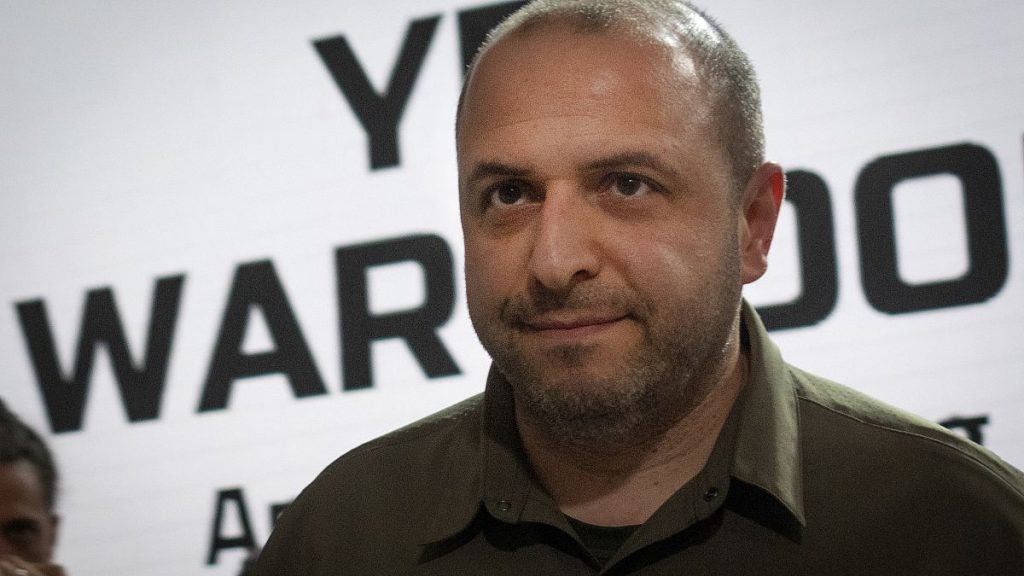The Ukrainian defense sector finds itself embroiled in controversy as Defence Minister Rustem Umerov faces scrutiny from the National Anti-Corruption Bureau (NABU) over allegations of abuse of power. The heart of the matter lies in Umerov’s decision to overrule the Defence Procurement Agency’s (DPA) supervisory board’s unanimous vote to extend the contract of its director, Maryna Bezrukova. Umerov justified his decision by citing alleged unsatisfactory performance and appointed Rustem Zhmadilov, who also heads the State Logistics Operator (DOT), a key entity responsible for procuring supplies for the Ukrainian army. This move has sparked concerns about potential conflicts of interest and raised questions about the transparency and accountability within the defense procurement process. The DPA, established to streamline weapons purchases and minimize corruption risks by eliminating intermediaries, has now become the center of an investigation that could have significant ramifications for Ukraine’s defense capabilities and international partnerships.
Umerov’s actions have drawn criticism and fueled concerns about the undue influence of the Defence Ministry over the DPA. His assertion that the DPA had inexplicably transformed into an “Amazon,” with its purchases becoming too publicly visible, raises questions about the balance between transparency and operational security in wartime. While maintaining confidentiality around arms procurement is crucial, critics argue that Umerov’s decision might undermine the independence and oversight functions of the DPA’s supervisory board. The dismissal of two influential board members, Taras Chmut and Yuriy Dzhyhyr, further exacerbates these concerns, adding to the perception of a power struggle within the defense establishment. The Anti-Corruption Action Centre’s formal complaint to NABU underscores the seriousness of the allegations and the potential for legal repercussions for the Defence Minister.
The controversy surrounding the DPA has garnered international attention, with G7 ambassadors expressing concerns and urging a swift resolution. Their joint statement emphasizes the importance of adhering to good governance principles and implementing reforms in line with NATO standards. This international pressure highlights the significance of maintaining transparency and accountability in Ukraine’s defense sector, particularly given the ongoing conflict and the substantial international aid the country receives. The G7’s call for adherence to NATO principles further underscores the need for Ukraine to align its defense procurement practices with international best practices, which emphasize transparency, competition, and the prevention of corruption.
At the core of this legal and political standoff is the question of authority and the interpretation of Ukrainian law regarding the powers of supervisory boards. While Ukrainian law typically grants supervisory boards the autonomy to hire and fire heads of state enterprises, recent amendments to the DPA’s charter, initiated by the Defence Ministry, appear to have shifted the balance of power. These amendments grant the ministry the authority to overturn decisions made by the supervisory board, creating a legal gray area that is now being tested. This ambiguity underscores the need for clearer legal frameworks and reinforces the importance of upholding the independence of oversight bodies to ensure accountability and prevent potential abuses of power.
The ongoing investigation by NABU will be crucial in determining the legality and propriety of Umerov’s actions. The outcome of this investigation will have significant implications for the future of defense procurement in Ukraine and could influence the country’s efforts to integrate with NATO. A thorough and impartial investigation is essential to restore public trust and reassure international partners of Ukraine’s commitment to tackling corruption and upholding good governance principles. The investigation’s findings will also be pivotal in shaping the legal landscape concerning the powers of supervisory boards and the oversight of state-owned enterprises.
Beyond the immediate legal and political ramifications, this controversy underscores the broader challenges facing Ukraine’s defense sector. Balancing the need for operational secrecy with the imperative of transparency and accountability remains a delicate act. The ongoing war and the significant influx of international military aid further complicate this equation. Establishing clear legal frameworks, strengthening oversight mechanisms, and promoting a culture of integrity within the defense establishment are crucial steps towards ensuring that Ukraine’s defense resources are used effectively and efficiently, while minimizing the risk of corruption. The unfolding events surrounding the DPA will serve as a critical test of Ukraine’s commitment to reform and its ability to navigate the complex challenges of building a modern and transparent defense sector.














